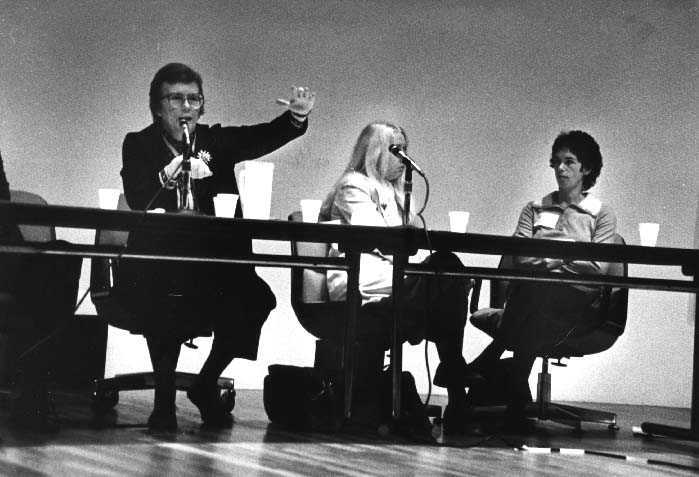Times aren’t easy for housing advocates. The HUD budget, like so many other domestic programs, has been treated as expendable in favor of boosting the military. Despite proclamations from various economic wizards that the recession has bottomed out and recovery is well underway, those living at the margins remain vulnerable. (The rising tide of prosperity, when it swells, never quite lifts their boats high enough to weather the hard times.) For more and more of these families, the uncertain economy, coupled with welfare reform, is pushing them to the brink of homelessness – and over. And now the Supreme Court has said that public housing authorities can evict a grandmother if one of her grandkids is caught smoking pot blocks away (See Shelter Shorts).
But in these tough and somber times, a dose of perspective can be healing. The basics of community development have always included organizing and collaboration. And this work has gone on before, more often than not, with grudging and minimal federal support. At the low points, like now, we need more than ever to remember and reinforce our fundamental strategies and strengths – and the successes they bring.
Perhaps no one can provide better perspective on the history of the housing movement than Cushing Dolbeare, founder of the National Low Income Housing Coalition. This spring marks the 50th anniversary of Dolbeare’s work in housing. In an interview in this issue Dolbeare discusses how she got into the field (“I was waiting for something more interesting to come along”), the on-going challenges of working with Congress, and a view of the long haul. She calls on advocates to move the discussion into the arena of what’s really needed to end the housing crisis. “One of the biggest mistakes advocates make is trying to figure out what they can get before they decide what they’re going to ask for,” she says.
Dolbeare is doubtless encouraged by what happened recently in Los Angeles. After three years of work, Housing LA, a coalition of religious organizations, community developers, labor, and tenants won a $100 million Housing Trust Fund. They aimed high, as Dolbeare suggests, focusing on the amount needed, rather than the political horse-trading over where it would come from. They also employed a carefully thought-out, persistent, collaborative strategy. The work carried them through, even in the face of the budget crisis created by September 11. The story of how they did it is a good reminder of some of the most basic lessons about organizing and advocacy.
HousingMinnesota also learned some lessons about collaboration – in this case not only among advocates, but also with a professional public relations firm. In the process of creating a public education campaign about the value of affordable housing, the group had to adjust to a different way of working, and closely evaluate its messages to see how they could translate into advertising. Building relationships and strengthening communications among ourselves, and with the greater public, are part of the basics.
Another “basic” ideal of community development has been a bottom-up approach to improving neighborhoods, led by the residents. Neighborhoods are made of blocks – and often that’s where the residents organize first, addressing problems from drugs to slumlords to abandoned housing. But many block groups suffer from burnout and high turnover, while others are disconnected from issues affecting a larger neighborhood. In this issue we explore the potentials and pitfalls of block groups, and examine different ways neighborhood and citywide groups can work with them.
These stories remind us that, in the face of numerous challenges, community-based organizations are persevering, and that our deepest-held principles of community organizing and empowerment endure.




Comments